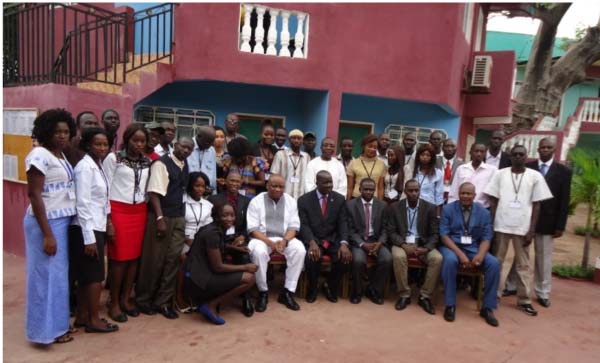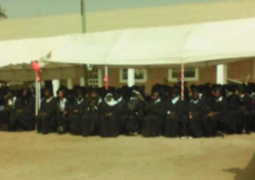
The stakeholders meeting, held at the Baobab Hotel, also brought experts from Niger and Senegal to share their ideas and experiences with the Gambian people.
The deputy permanent secretary, CONA-CILSSat the Ministry of Agriculture, Assan Jallow, said in his statement that the West African Region has an extensive network of National MarketInformation Systems that fulfil their missions to varying degrees, namely market data collections, rice,and quantities offerred.
Market information processing, analysis and dissemination through increasingly diverse channels, to the attention of various stakeholders, public authorities, producers, traders and their organisations, researchers, consultants, and students.
The workshop was a consequence of an information and awareness-raising mission organised by CILSS to The Gambia 2013, he said.
According to Mr Jallow, the mission’s agenda included meeting with national stakeholders, (ministries, national directorates, producer or trader organisations), technical and financial partners (FAO, WFP, NGOs) concerned by market information; make an assessment of support needs and propose an action plan for the revitalization of the MIS in the country.
The missions assessment report identified numerous technical and organizational difficulties, as well as opportunities after a wide ranging consultations with technical and financial partners concerned by market information, including changes observed over time, in the data collections and processing methodology, the understaffing of the MIS team, the weak relationship with partners with regard to the institutional position of the MIS, which does not make it possible to secure a substantialbudget for the MIS to work optimally.
In addition, the mission found that there exist undeniable opportunities with local partners and CILSS for revitalizing The Gambia MIS.
According to Mr Jallow, CILSS through its financial and technical partners RESMAO/WAMIS-NET with funding from the European Union is assisting countries such as The Gambia in strengthening the running of their MIS.
The workshop would make an inventory of the Gambia MIS by identifying the strengths and weaknesses, and opportunities and threats, identify and analyze the technical potentials and existing resources and propose a technical plan for information collection, processing and dissemination at national and regional levels, propose an institutional and organizational framework in line with the resources available and the needs of the MIS partners.
The objectives of this workshop, he added, was to put in place a monitoring system to ensure the sustainability and the expected results is to strengthen/weaknesses and opportunities/threats of the Gambia MIS are known and diagnosed, a technical implementation plan of proposals in relation to the resources is identified and institutional and organizational framework is proposed and adopted and a monitoring system is put in place to ensure the sustainability of the process.
In his welcoming remarks, the deputy director of Planning Services Unit, Abba Sankareh, thanked the participants for responding to their invitation, noting that it was clear indication that the participants attached importance to the revitalization of the Gambia market information system.
He spoke at length on the importance of the forum which he said would go a long way in addressing issues affecting market information system.
He also challenged the participants to learn more from the facilitators who are experts in their various areas and are out to share their experiences with the Gambian people in improving the market information system, which is key.



